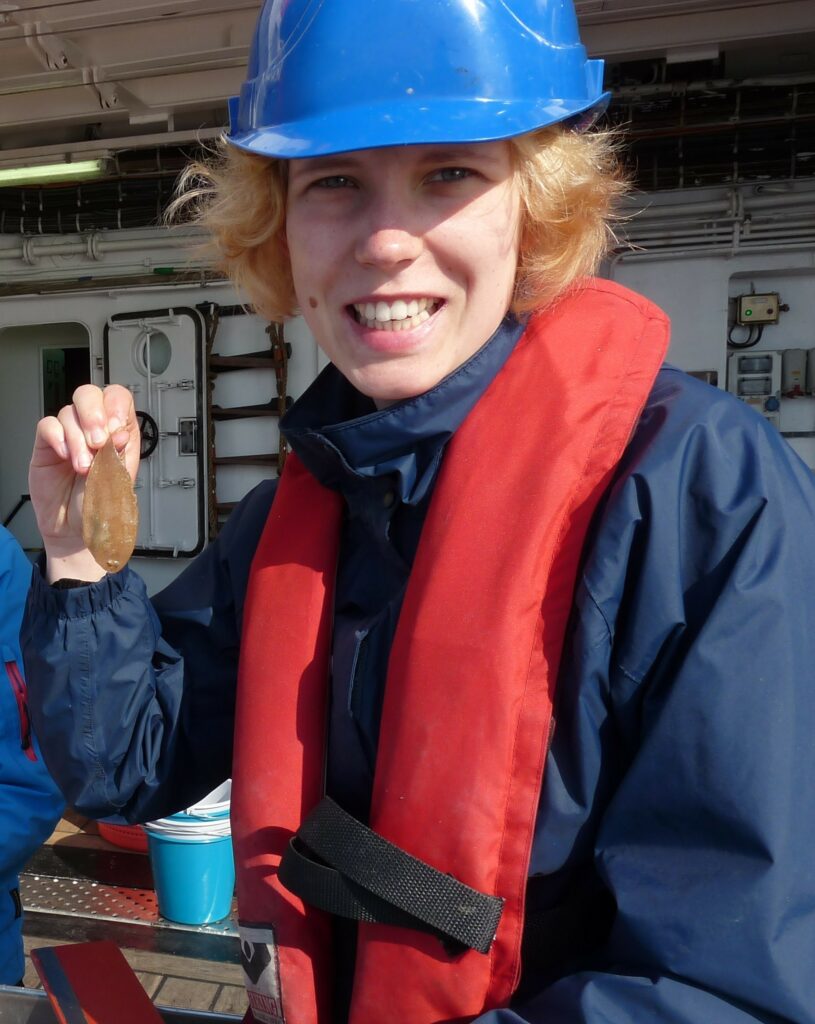spotlight on early-career researchers: kristina beck

My name is Kristina Beck, and I am investigating the effect of future environmental conditions, including climate change, on cold-water corals, both on the physiology of live corals and the dead skeletal framework.
We are currently planning a long-term multiple stressor aquarium experiment with the cold-water coral Lophelia pertusa. In this experiment, we want to investigate the response of L. pertusa to a combination of elevated temperature, reduced pH, reduced oxygen concentration and reduced food supply. As we study the effect on both live corals and dead coral skeletons, this will improve our understanding of how cold-water coral reefs will change under future environmental conditions.
How does your research benefit society globally and developing countries in particular?
As cold-water corals form a three-dimensional, complex habitat in the deep sea, they provide important nursery grounds and habitats for many species of invertebrates and fish, including economically important species. The biodiversity of cold-water coral reefs is comparable to that of tropical coral reefs. Therefore, it is important to better understand how cold-water corals cope with future environmental changes, in order to protect these vulnerable marine ecosystems from climate change, and to maintain biodiversity in these areas, which also benefits local fisheries.
What motivates you to spend your days studying corals and the ocean?
I find it particularly fascinating that we still know so little about cold-water corals and that there is still so much to discover, especially in terms of their resilience to future environmental conditions. I fear that we will lose these ecosystems due to climate change or that they will change too quickly before we even get a chance to fully understand them.
Are Scotland’s cold-water corals likely to die within 100 years or will they adapt and survive?
The structure of cold-water coral habitats in Scotland and all around the world is likely to change over the next 100 years. Today, cold-water coral reefs form a complex, three-dimensional framework and therefore support high levels of biodiversity. However, the reefs will change to less complex and much simpler reef structures, which will certainly reduce the quality of the habitat for other species and the biodiversity in these ecosystems.
What are your views on the current climate-related ocean changes? What is your message to international negotiators?
My message to international negotiators and decision-makers is to protect more vulnerable marine ecosystems, like cold-water coral reefs, as far too few areas of the world’s oceans are protected!
What can we do to protect coral reefs and minimise the impacts of climate change on the ocean?
Since we usually think of tropical coral reefs when we talk about corals, we should make people aware that corals also exist in the deep sea and that they are also threatened by anthropogenic stressors such as ocean acidification, warming, deoxygenation, deep sea mining and bottom trawling. Raising other people’s awareness of these cold-water coral reefs and the threats they face will raise awareness of the need to protect them. And of course, we all need to reduce our carbon dioxide emissions to reduce the impact of climate change, which affects not only corals, but all ecosystems worldwide.
Tell us the most memorable experience you have in studying the ocean?
I will never forget the first dive when I saw cold-water corals in nature for the first time. I had already worked with cold-water corals in the lab for several years, but never had the opportunity to see them in their natural habitat. This is of course not as easy as with tropical corals and usually requires remotely operated vehicles or submarines to collect them. However, in Chilean fjords, several cold-water corals species occur in shallow waters accessible to SCUBA divers, and during an expedition, I had the opportunity to dive to these sites. It was incredible to see the different colours of the corals, with their open polyps to catch their prey, and all the fish and invertebrates around and between them.
What advice would you give to early-career and aspiring researchers wishing to contribute to this kind of research?
It is probably best to get in touch with researchers working in the field you are interested in as soon as possible and attend conferences to build your network. My advice is also to always be curious and open to opportunities as they arise, as you never know what they will lead to, and not to be discouraged by setbacks.
